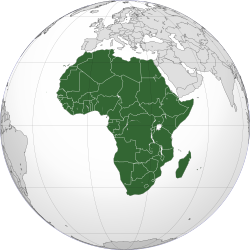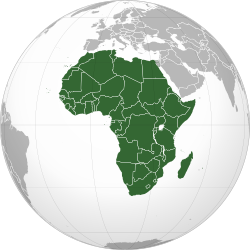
AU And Global Fund Unite To Fortify Africa's Health Systems

The African Union and the Global Fund to Fight AIDS, Tuberculosis and Malaria have signed a memorandum of understanding aimed at bolstering health systems across the continent, particularly in the fight against AIDS, tuberculosis and malaria. The agreement, inked on 3 November 2025 in Geneva, commits both parties to deeper collaboration including data-driven accountability, domestic resource mobilisation and integrated development planning.
Under the pact, the AU and the Global Fund will target implementation of the AU's“Roadmap to 2030 & Beyond: Sustaining the AIDS Response, Ensuring Systems Strengthening and Health Security for the Development of Africa”, as well as leveraging the AU's Agenda 2063 vision for self-reliant health infrastructure. The key collaboration areas include accelerating domestic health financing reforms through the AU Development Agency–NEPAD, regional economic communities and health financing hubs; integrating digital innovation and community health systems into national strategies; and coordinating responses to emerging threats such as climate-related health shocks and antimicrobial resistance.
Ambassador Amma Adomaa Twum-Amoah, AU Commissioner for Health, Humanitarian Affairs and Social Development, described the agreement as“a significant step towards sustainable domestic resource mobilisation and the effective delivery of continental health priorities.” Global Fund Executive Director Peter Sands underscored the partnership's strategic significance, stating that“By working together more strategically, with African leadership, we tackle today's toughest health challenges – from pandemics and epidemics to climate-related threats – while building systems that deliver equitable, sustainable care for all.”
The framework builds on existing efforts where the AU and Global Fund have worked together in the context of the AU Catalytic Framework to End AIDS, TB and Eliminate Malaria in Africa by 2030, and the African Health Strategy 2016–2030. The new MoU amplifies efforts around integration of disease control with broader development aims. The Global Fund's eighth replenishment process will depend significantly on momentum generated by such strategic partnerships, emphasising sustainability and domestic financing as opposed to reliance solely on international aid.
See also Mauritius Sets Benchmark with CIEL's Sustainability-Linked BondThe timing of this agreement coincides with mounting pressure on health systems across Africa. Challenges include constrained donor funding, shifting global priorities amid economic headwinds, and the increasing frequency of climate-driven health emergencies. Technical actors note that strengthening in-country capacity, digital health, and community-based delivery models are no longer optional but imperative. Analysts highlight that Africa produces only about 1 per cent of the vaccines it uses - underscoring the need for local manufacturing and regulatory autonomy.
Despite the positive ambitions, observers caution that translation from agreement to tangible results has often been inconsistent. Domestic mobilisation of funds remains uneven across countries in the AU's membership, and many health systems continue to struggle with workforce shortages, supply-chain fragility and governance bottlenecks. Implementation hinges on political commitment at national level, and expert observers warn that without measurable metrics and accountability mechanisms, high-level promises risk remaining symbolic.
In terms of next steps, the MoU envisages establishing a joint implementation plan that encompasses technical working groups, monitoring and evaluation frameworks and coordination with regional economic communities. The document emphasises that digital innovation and community health systems must not be seen as standalone vertical initiatives, but as integrated components of national strategies. More than twelve countries in eastern, western and southern Africa were already convened in national health financing dialogues ahead of this agreement. The AU's leadership of the agreement signals a shift towards African-owned health priority-setting and away from donor-led agenda-setting, aligning with the broader continental aspiration of health sovereignty.
The deal also positions the Global Fund as not only a financing mechanism but a strategic partner in systems strengthening and sustainable development. The dual emphasis on disease-specific programmes and broader system resilience reflects evolving thinking in global health financing, which has increasingly recognised that pathogen-specific responses must be embedded within well-functioning health systems.
See also Digital Trade Takes Centre Stage with Africa Trade Gateway in RwandaRegional diversity across Africa means implementation will need to be adapted to differing needs: for example, some countries are still scaling up community health worker networks, while others are advancing digital health platforms or local manufacturing. Civil society advocates emphasise that community participation, gender equality and reaching marginalised populations should be central to the rollout. The MoU's language on equitable access and inclusive systems provides a foundation but requires concrete mechanisms to ensure underserved groups are reached.
Notice an issue? Arabian Post strives to deliver the most accurate and reliable information to its readers. If you believe you have identified an error or inconsistency in this article, please don't hesitate to contact our editorial team at editor[at]thearabianpost[dot]com. We are committed to promptly addressing any concerns and ensuring the highest level of journalistic integrity.
Legal Disclaimer:
MENAFN provides the
information “as is” without warranty of any kind. We do not accept
any responsibility or liability for the accuracy, content, images,
videos, licenses, completeness, legality, or reliability of the information
contained in this article. If you have any complaints or copyright
issues related to this article, kindly contact the provider above.


















Comments
No comment